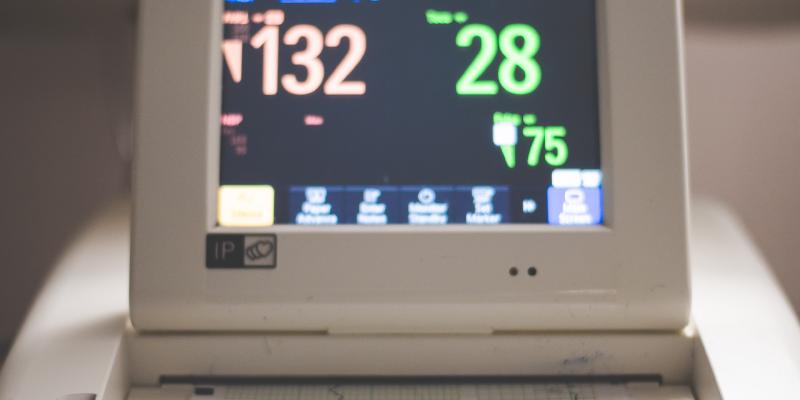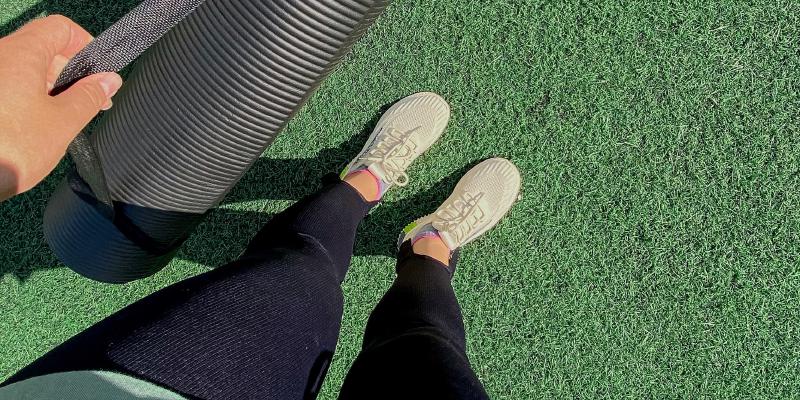
Athletes’ health screening
A large number of athletes are being examined on a daily basis in the Sports Medicine Laboratory by specialized cardiologists and the goals of their health screening are:
Study the anatomical and functional integrity of the heart
to study the anatomical and functional integrity of the heart so that athletes can safely continue their sport, which in many cases the training load that they daily receive during their workout is significantly increased. As an example, endurance athletes cover up to 40 Km per day, while weight-lifters experience arterial pressures in their efforts up to 300/150 mmHg.
Exercise-induced cardiac adaptations or fatal cardiomyopathies?
Differential diagnosis between exercise-induced cardiac adaptations (athletic heart) and fatal cardiomyopathies such as hypertrophic cardiomyopathy, which is the first cause of sudden death in young people during exercise. In the first case, sports are allowed, while in the latter it is strictly forbidden. However, the differences between normal and pathological hypertrophy are often so marginal that only a detailed study of morphology and function of the myocardium can safely and quickly lead the physician to the diagnosis which is critical for the athlete.
Cardiac Diseases. Is exercise allowed?
Sports are allowed in a very large portion of athletes with cardiac diseases. However, in these cases, an accurate screening of the cardiac disorder should be performed in order exercise to be safe and beneficial, e.g. valvular heart diseases, so that the level of exercise can be determined in accordance with current guidelines.
The study of the effects of exercise on the morphology and function of the heart
The study of the effects of exercise on the morphology and function of the heart is nowadays the main research interest regarding athletes’ health e.g. exhaustive exercise probably causes damage to the right ventricle of the heart similar to cardiomyopathies. Therefore, a detailed study provides important information.
Doping
Unfortunately, some athletes are using doping substances, most of which cause short- or long-term cardiovascular damage. In many cases, they ask for advice on their detoxification and control of possible heart damage.
In the context of the operation of the Athletic Health Screening Clinic, the chance of medical check-up is offered to all athletes. To date, more than 22500 professional and amateur athletes have been screened for signing the athletic-fitness health certification card. There is a computerized database of all the clinical and laboratory findings of tested athletes’ so that there is the ability of comparative results on a long-term basis control and research.
Sports Federations, sports clubs and individual athletes interested in screening their health may address to the following telephone numbers:
- 2310-992184
- 2310-992182
- 2310-992188

Exercise Rehabilitation Programs
For the past 25 years, physical rehabilitation programs are being implemented in the Sports Medicine Lab in patients with chronic heart disease and end stage chronic kidney disease under hemodialysis at the AHEPA Hospital’s renal unit. The staff of the Laboratory has conducted a large number of studies regarding the effect of long-term innovative therapeutic exercise programs and the assessment of anatomical and functional adaptations of exercise in patients. The Sports Medicine Laboratory is a modern Laboratory (ISO 2008), with state-of-the-art equipment for the non-invasive evaluation of the cardiorespiratory system. More than 200 patients are trained free of charge each year as part of a program contract with the Municipalities of Thessaloniki and Evosmos in Municipal Gyms and at AHEPA Hospital.
Exercise programs are conducted by qualified physical education instructors, under the supervision of members of the Laboratory and in scientific collaboration with Clinics and Laboratories of the Medical School. Recurrent rehabilitation programs were applied to children with neoplasia and cystic fibrosis, patients with diabetes mellitus, wheelchair and psychiatric patients. The prescription of the exercise is based on the medical status of the patient, the functional competence and the goals of the patient. After initial training in the lab, all patients are exercised in subgroups at municipal gyms. Each subgroup consists of 10 patients, and each exercise session includes various aerobic and static exercises, dance, pilates, zouba, step-aerobic and hydro-gymnastics. For safety there are telecardiology applications, such as inter-telephone transmission of electrocardiogram from gyms to the Sports Medicine Lab. There has never been any complication from the implementation of the programs.
Those who are Interested and wish to participate in therapeutic exercise programs can contact the following telephone numbers:
- 2310-992184
- 2310-992493
- 2310-992189

